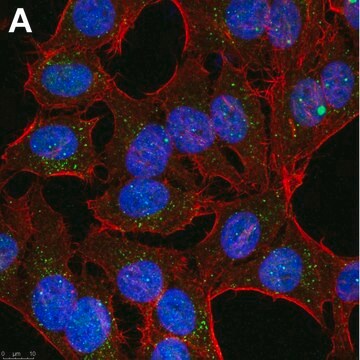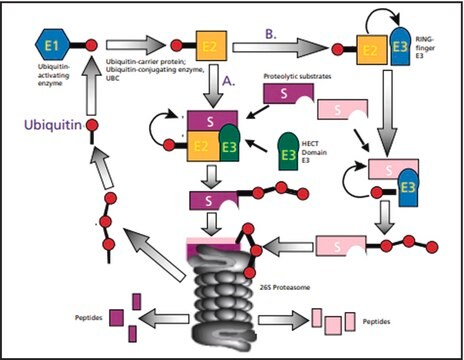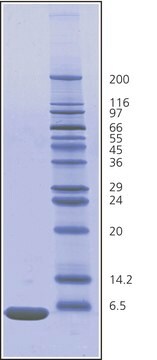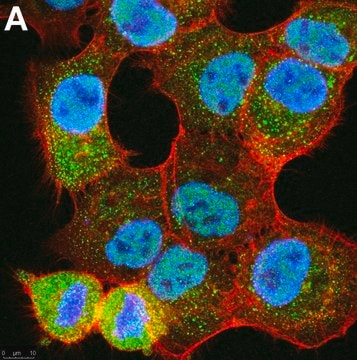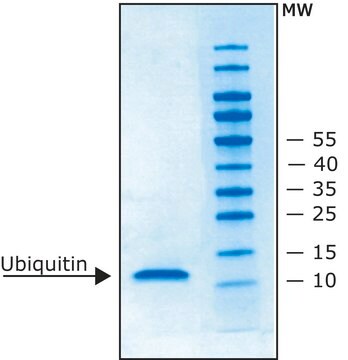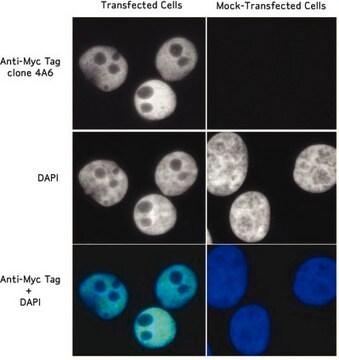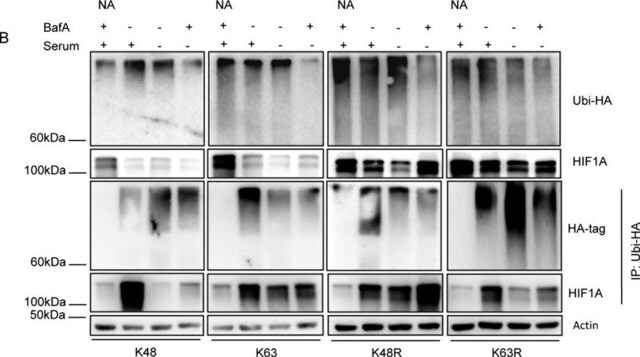MABS451
Anti-Linear Ubiquitin Antibody, clone LUB9
clone LUB9, from mouse
Synonym(s):
Polyubiquitin-C, Ubiquitin
About This Item
Recommended Products
biological source
mouse
Quality Level
antibody form
purified immunoglobulin
antibody product type
primary antibodies
clone
LUB9, monoclonal
species reactivity
human
technique(s)
western blot: suitable
isotype
IgG2bκ
NCBI accession no.
UniProt accession no.
shipped in
wet ice
target post-translational modification
unmodified
Gene Information
human ... UBC(7316)
General description
Specificity
Immunogen
Application
Signaling
Signaling Neuroscience
Quality
Western Blotting Analysis: 1.0 µg/mL of this antibody detected 10 µg of Linear Polyubiquitin recombinant protein chains, bands were not detected in K48 Ub 2-7, K63 Ub 2-7, and K11-only Ubn-ubiquitinylated HM substrate protein.
Target description
Physical form
Storage and Stability
Other Notes
Disclaimer
Not finding the right product?
Try our Product Selector Tool.
recommended
Storage Class Code
12 - Non Combustible Liquids
WGK
WGK 1
Flash Point(F)
Not applicable
Flash Point(C)
Not applicable
Regulatory Listings
Regulatory Listings are mainly provided for chemical products. Only limited information can be provided here for non-chemical products. No entry means none of the components are listed. It is the user’s obligation to ensure the safe and legal use of the product.
JAN Code
MABS451:
Certificates of Analysis (COA)
Search for Certificates of Analysis (COA) by entering the products Lot/Batch Number. Lot and Batch Numbers can be found on a product’s label following the words ‘Lot’ or ‘Batch’.
Already Own This Product?
Find documentation for the products that you have recently purchased in the Document Library.
Our team of scientists has experience in all areas of research including Life Science, Material Science, Chemical Synthesis, Chromatography, Analytical and many others.
Contact Technical Service